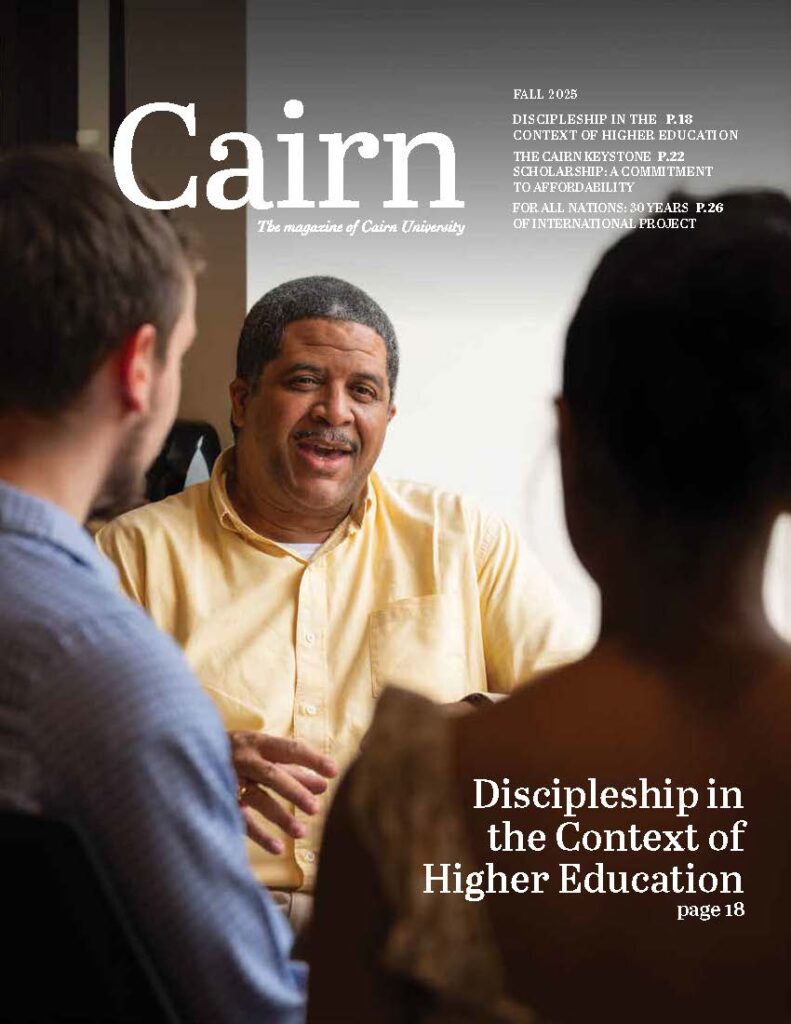Paul reminds us in Philippians 3:20 that “. . . our citizenship is in heaven, from which also we eagerly wait for a Savior, the Lord Jesus Christ.” Christians are members of a spiritual commonwealth not identified with any earthly nation, but called out from all nations. Its methods are spiritual, not political. It seeks to glorify the eternal God through lives transformed by faith in Jesus Christ and enabled by the indwelling Holy Spirit.
Yet the Philippians to whom Paul wrote had dual citizenship. They were also citizens of the Roman Empire. None of them could escape the question of how a believer with a heavenly destiny should be related to the earthly society of which they are presently a part. Should they seek to transform it into an entity that glorifies God? Or should they abandon it as hopelessly evil and rescue as many as possible from its doom?
This age-old dilemma is especially acute for American Christians today because of democratic republic provides opportunities for political participation and social change unknown to Roman believers of Paul’s day. As citizens of a heavenly kingdom, what responsibilities do we have as citizens of an earthly commonwealth? I suggest that we can accomplish much good through the political processes of our nation. But responsible citizenship depends on following several important principles.
First, we must be biblical. A good citizen of heaven is guided by the Bible in fulfilling earthly responsibilities. This means, first, that we must be biblical in our understanding of right and wrong, just and unjust, moral and immoral. We must ask what God thinks about gambling; million-plus abortions performed every year; the fiscal irresponsibility that piles up huge governmental deficits; and discrimination based on race, class, or ethnicity. We must take into account how he feels about officials taking bribes from businesses or labor unions or the wealthy escaping punishment for their crimes. Biblical principles speak to such matters, and we are responsible to know and apply them.
We must also be biblical in evaluating what human government can do. The Bible teaches that mankind is sinful, so every society and government are flawed. There are therefore some problems government cannot solve. Politicians do not like to admit this. They promote the illusion that government can meet all human needs. But Christians who adopt God’s view of human nature will not expect too much from it. They will not put all their trust in a man, party, or a pressure group. They will resist human labels such as liberal or conservative. They will be saddened, but not surprised, at political scandals and unsolved social evils, and will not be devastated when even Christian statesmen disappoint them.
We must be biblical, thirdly, in our priorities. Some Christians believe that politics must be our priority—elect the right persons, get the right measures passed, and America will return to its spiritual moorings. But nothing could be farther from the truth. Politics can indeed retard evil and make our communities safer. But only the spread of the gospel will attack the basic spiritual problem of humanity—a sinful disposition. God may call some believers to a political career. But those who enter it must be realistic, understanding that political reforms are neither a substitute for evangelism nor a fast track to the millennium. Focusing on reform without evangelizing is like mopping up water while forgetting to turn off the faucet.
Although government is a worthy career for a Christian individual, we must take care not to drag the church as a body into partisan politics. While the church’s mission includes offering moral principles for life, it is not called to offer political programs. The church owes total loyalty to Christ, and when it identifies with a party, person, or position, it compromises that loyalty and alienates a large segment of those it is called to reach with the gospel. God has ordained government and the church for separate purposes, and confusion always ensues when one usurps the role of the other.
We must be biblical, finally, in our example. If we take a stand on a social issue, let us be sure our lives measure up to the standard we are calling for. If we crusade against alcohol or abortion, we will not get much support from our neighbors if we endanger life by driving recklessly. And let us always use methods Jesus could approve. “Fight fire with fire” should not be in the Christian vocabulary. We must be honest and fair, displaying Christ’s love even in the heat of conflict. To do less is to betray our cause and the Lord we represent.
This article was originally published in the Fall 2007 issue of PBU Today (now Cairn magazine).










